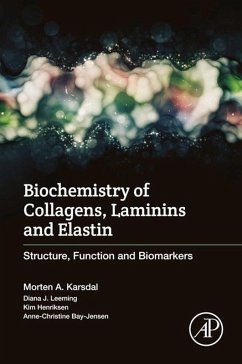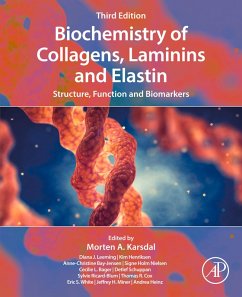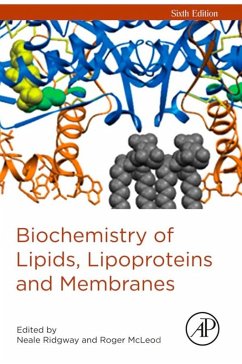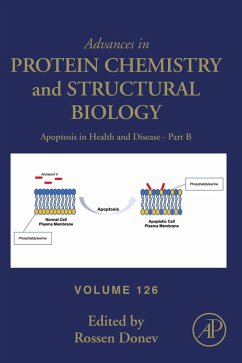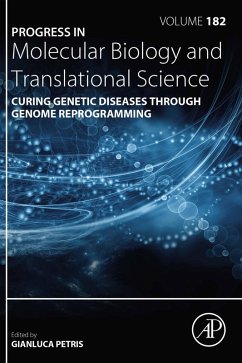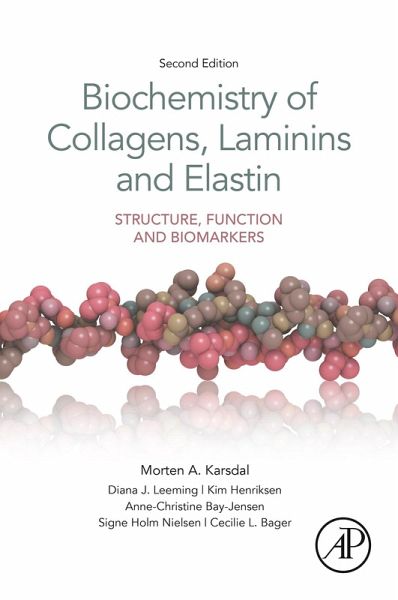
Biochemistry of Collagens, Laminins and Elastin (eBook, ePUB)
Structure, Function and Biomarkers
Versandkostenfrei!
Sofort per Download lieferbar
95,95 €
inkl. MwSt.
Weitere Ausgaben:

PAYBACK Punkte
48 °P sammeln!
There are 28 different collagens, with 46 unique chains, which allows for a collagen for each time and place. Some collagens are specialized for basement membrane, whereas others are the central structural component of the interstitial matrix. There are eight collagens among the 20 most abundant proteins in the body, which makes these molecules essential building blocks of tissues. In addition, lessons learned from monogenomic mutations in these proteins result in grave pathologies, exemplifying their importance in development. These molecules, and their post-translationally modified products ...
There are 28 different collagens, with 46 unique chains, which allows for a collagen for each time and place. Some collagens are specialized for basement membrane, whereas others are the central structural component of the interstitial matrix. There are eight collagens among the 20 most abundant proteins in the body, which makes these molecules essential building blocks of tissues. In addition, lessons learned from monogenomic mutations in these proteins result in grave pathologies, exemplifying their importance in development. These molecules, and their post-translationally modified products serve as biomarkers of diseases in a range of pathologies associated with the extracellular matrix. Biochemistry of Collagens, Laminins, and Elastin: Structure, Function, and Biomarkers, Second Edition provides researchers and students current data on key structural proteins (collagens, laminins, and elastin), reviews on how these molecules affect pathologies, and information on how selected modifications of proteins can result in altered signaling properties of the original extracellular matrix component. Further, it discusses the novel concept that an increasing number of components of the extracellular matrix harbor cryptic signaling functions that may be viewed as endocrine function, and it highlights how this knowledge can be exploited to modulate fibrotic disease. - Provides an updated comprehensive introduction to collagen and structural proteins - Gives insight into emerging analytical technologies that can detect biomarkers of extracellular matrix degradation - Includes seven new chapters, including one on how collagen biomarkers are used in clinical research to support drug development and in precision medicine - Contains insights into the biochemical interactions and changes to structural composition of proteins in disease states - Proves the importance of proteins for collagen assembly, function, and durability
Dieser Download kann aus rechtlichen Gründen nur mit Rechnungsadresse in A, B, BG, CY, CZ, D, DK, EW, E, FIN, F, GR, HR, H, IRL, I, LT, L, LR, M, NL, PL, P, R, S, SLO, SK ausgeliefert werden.




